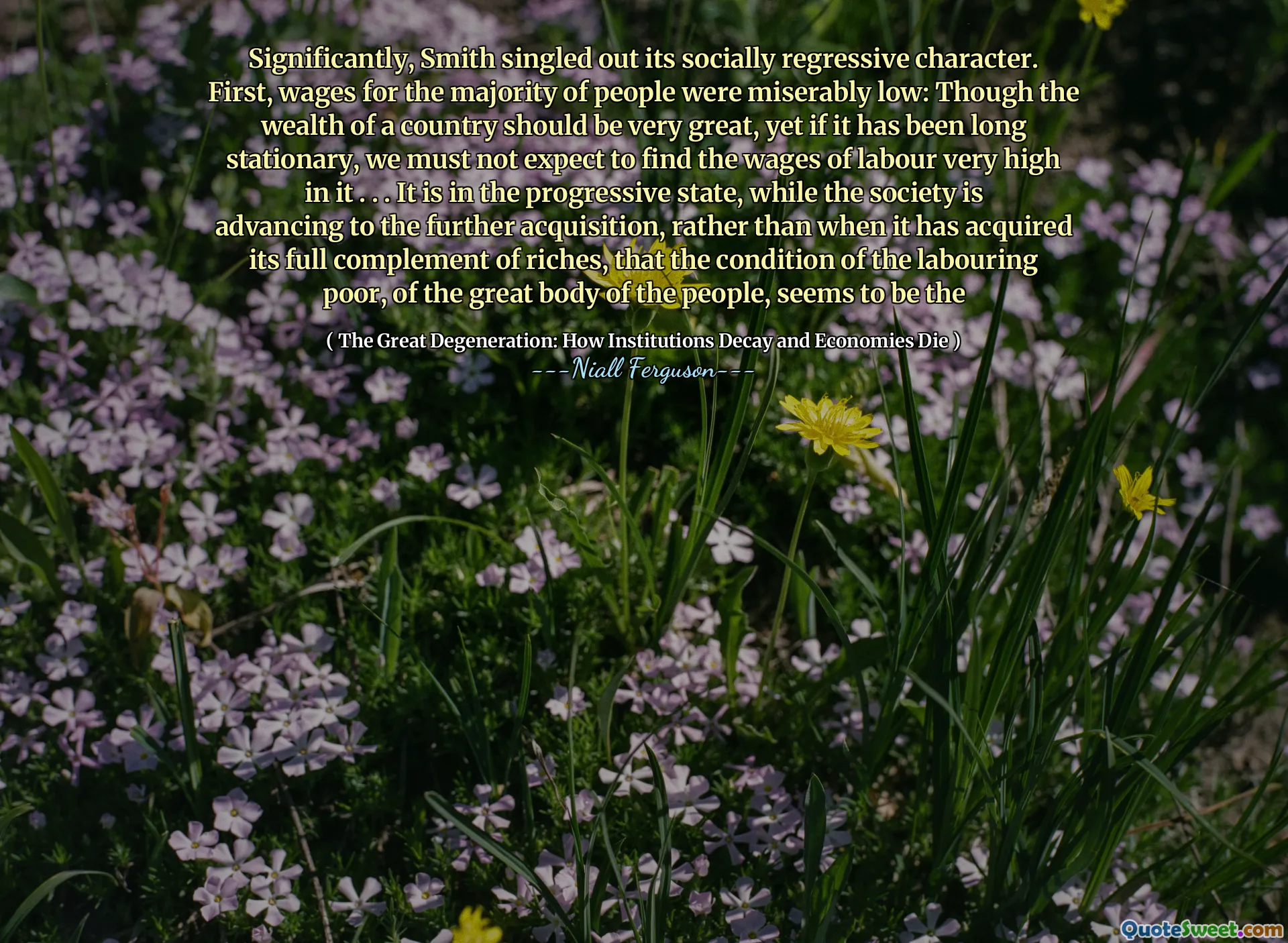
Significantly, Smith singled out its socially regressive character. First, wages for the majority of people were miserably low: Though the wealth of a country should be very great, yet if it has been long stationary, we must not expect to find the wages of labour very high in it . . . It is in the progressive state, while the society is advancing to the further acquisition, rather than when it has acquired its full complement of riches, that the condition of the labouring poor, of the great body of the people, seems to be the
Niall Ferguson, in "The Great Degeneration," highlights the socially regressive nature of certain economies, emphasizing that low wages persist in stagnant societies. He argues that even if a country's overall wealth appears considerable, prolonged economic stagnation keeps labor wages low. This situation indicates an absence of progressive growth that typically benefits workers.
Ferguson reflects on how societal advancement correlates with the improvement of the laboring class's condition. He believes that it's during times of economic progression, rather than after wealth accumulation, that the plight of the majority tends to improve significantly.











